We published three issues of the AIPLA Daily News onsite at the annual meeting last week, including interviews, photos and reports. The newsletters can be downloaded as PDFs here, and all the articles can also be read online at www.managingip.com.
Some of the highlights are below. The links included are to the online articles and are all free access. However, don't forget to take out a trial subscription for full access to our site and to receive e-mail notifications.
Office heads lay out priorities
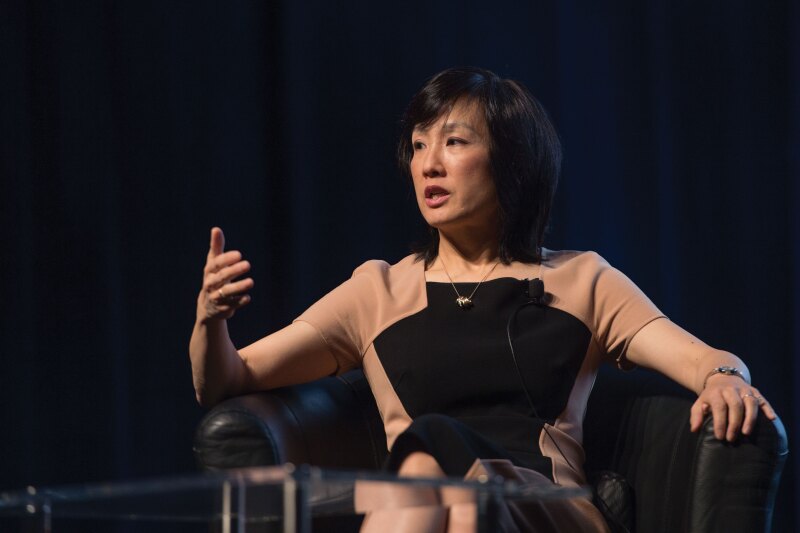
In a discussion that opened the conference, USPTO director Michelle Lee revealed her goals. The first was to improve patent quality. “We’ve embarked on an unprecedented quest for [patent] quality during my time as director of the USPTO,” she said. She revealed the Office is transforming its review data capture process to improve its analytical capabilities. Lee believes this will increase the number of data points the USPTO has by three to five times. It will then use big data techniques to learn from the data and provide examiner level feedback and training.
Lee also had uncharacteristically strong words about the scope of geographical indications under the Geneva Act of the Lisbon Agreement, agreed earlier this year. The USPTO is trying to tackle the expansion of the scope of GIs two ways: challenging the agreement’s legitimacy and developing an alternative. “We achieved two positive outcomes,” reported Lee. The first is the Lisbon Union is now on a path to financial independence, so US companies’ PCT fees will not help fund it. “Secondly, working with other countries we were able to get the WIPO Standing Committee on Trademarks to work on an alternative to the Lisbon Agreement that is more in line with US thinking on geographical indications.”
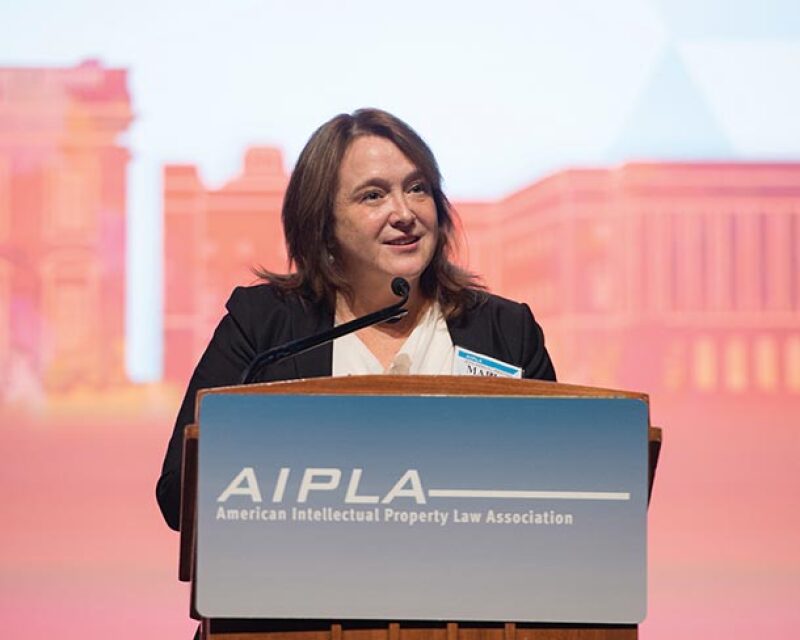
The following day US Register of Copyrights Maria Pallante revealed that the US Copyright Office had been asked by the Senate Judiciary Committee to research and provide information about copyright protection and software. The Copyright Office also recently revealed its new strategic plan.
It released the public draft of the plan, setting out the Office’s performance objectives for the next five years.
Fair use gets fair hearing
With the conference taking place a week after the Google Books decision come out of the Second Circuit, one copyright session was particularly timely.
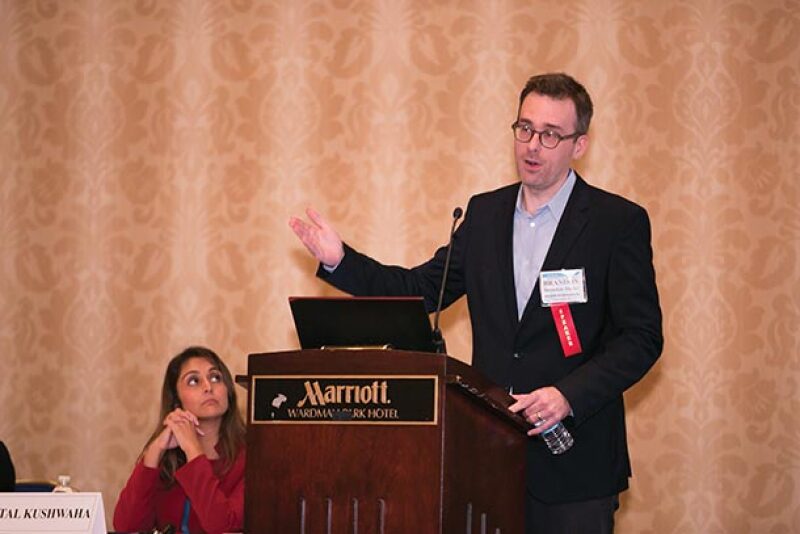
Brandon Butler of the American University Washington College of Law said the decision was important because it is a refinement of fair use analysis by one of the most influential thinkers on the subject. Butler described Judge Pierre Leval’s ruling as a “tour de force” on his concept of transformative use. He said what is most interesting about the case is that Leval appeared to have added a new refinement to fair use analysis based on market concerns. In addition to requiring a finding of transformative purpose, a use is fair only if it does not provide a market substitute. “Even if your purpose is new, the effect cannot be to provide market substitutes that substantially impairs the market of the original,” Butler explained.
Alice – the movie
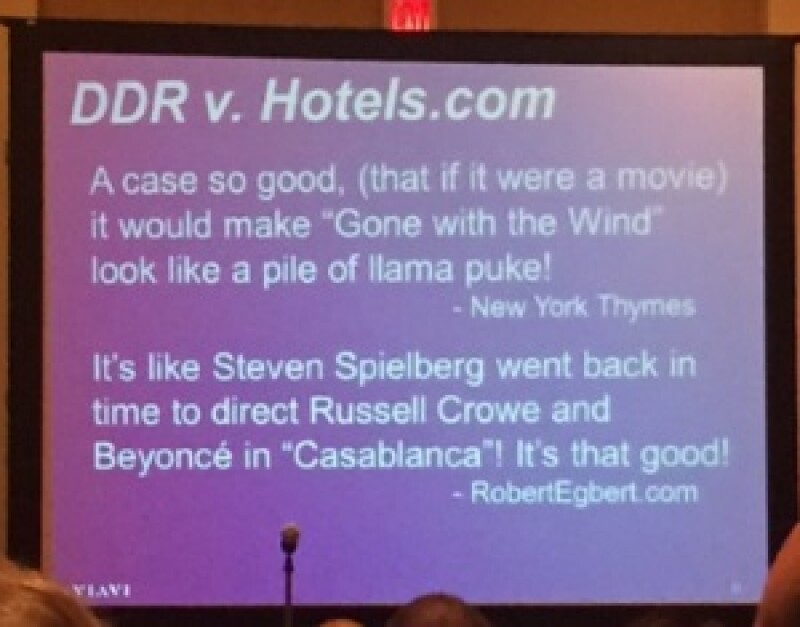
So much has been said about the Supreme Court’s Alice v CLS decision in the past 16 months that it is hard to think of new ways to broach the topic. This was not a problem for David Beck, director of IP at Viavi Solutions, who analysed the Federal Circuit and district court rulings interpreting Alice in the style of movie reviews.
Among the reviews were:
Ultramercial v Hulu (Federal Circuit): “The worst finale to a trilogy since ‘Godfather Three’! The first two Ultramercials were waaaaaaaaaaaaaaaaaaay better.”
DDR Holdings v Hotels.com (Federal Circuit): “It’s like Stephen Spielberg went back in time to direct Russell Crowe and Beyonce in ‘Casablanca’! It’s that good!”
eDekka v 3Balls.com (Eastern District of Texas): “Cases like this are sinking software patents faster than Leonardo DiCaprio on the Titanic. But unlike the movie there are no lifeboats here.”
PTAB still dominates discussions
The Patent Trial and Appeal Board was the subject of much conversation at the meeting. Sharon Israel, who stood down as AIPLA president during the meeting, called them “the new normal” in an interview with Managing IP. “It is certainly something that is on everybody’s mind to try and make those proceedings as fair and balanced as possible and hopefully get them to where they need to be to operate as intended,” she said.
Michelle Lee highlighted some of the changes the USPTO has made to the proceedings including: allowing patent owners to include new testimonial evidence with their opposition to a petition for institution; having a new certification requirement that will give us a more robust means with which to police misconduct; clarifying when the PTAB will switch to using a district court claim construction instead of the broadest reasonable interpretation, if a patent is about to expire; and announcing a proposal for a pilot programme that would consider changing staffing of PTAB trials to make them more efficient.
Elsewhere, Terry Rea of Crowell & Moring shared some best practices for dealing with the Board. These included not being afraid to defer to a colleague during a hearing. “Your job is to actually answer the question, give the judges what they want and hopefully persuade them that your side wins,” she said.
The AIPLA finds consistency
Sharon Israel, who concluded her year as president at the meeting, noted it had been a year of challenges for the Association. “It was the year of transition,” the Mayer Brown partner said. This included Lisa Jorgenson starting as executive director soon into Israel’s term as president.
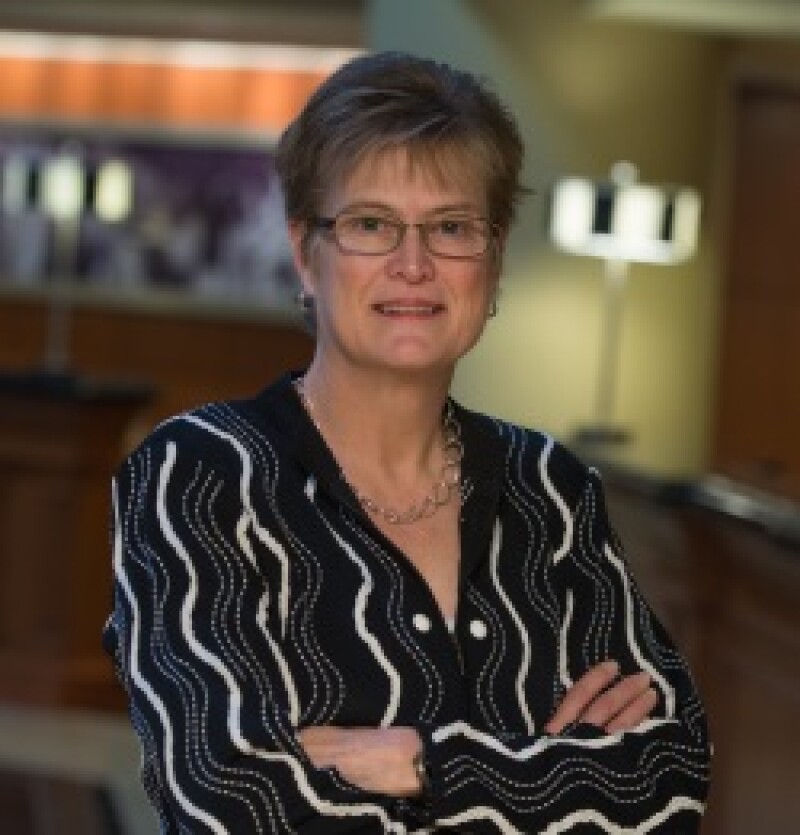
Jorgensen told Managing IP that she sees her role as one of bringing consistency.
“A big part of my job now is to make sure we have a very smooth transition year to year from president to president, as well as welcoming all of our new board members and committee leaders.”
The association also reported good news in its Women in IP Law Committee Law breakfast. It was revealed that, after a dip in 2013, the percentage of women speakers and moderators on plenary/concurrent sessions at the annual meeting was back up to more than 30%.
Judges get nostalgic
Federal Circuit judges seemed in wistful mood at the meeting. Judge Richard Linn received the AIPLA Excellence Award, and revealed he had been involved with the organisation since 1965, when he was a student. He said that his career in IP “has been rewarding professionally and financially – at least until I became a judge!” He added that “IP was somewhat of a backwater when I started, now it is the backbone of the economy.” He concluded that “you know it’s a good day when you get listen to your own eulogy.”
Judge Alan Lourie followed this up later that day in a lunchtime speech. He said that industries were not divided about IP in his day. “When I was in industry, all companies involved in science and technology and virtually all patent lawyers were in favour of a strong patent system,” he said. “Although I can’t speak for today’s science and technology companies, we see amicus briefs filed in our en banc cases with what some may call a pro patent/anti-patent division among companies.”
Elsewhere, district court judges warned lawyers that it hurts their clients when they tussle over every claim construction term and discovery request.
Most cited forward patent The most-cited US patent
During a session on litigation and damages, Jason Hoffman of BakerHostetler revealed an interesting fact: the most forward cited patent ever is US patent 4,723,129, which is directed to inkjet printing. He said it had been cited 2,524 times.
Hoffman said that under a forward citation analysis of damages this would be the most valuable patent ever. However, he added that there is much dispute over what should be the correct method of assessing damages, with the Federal Circuit rejecting the 25% rule and the Nash Bargaining theory in recent years.
Hoffman also took the chance to declare “the technical expert is back!” in patent cases as a result of the Supreme Court’s Teva ruling earlier this year. He said: “It has basically become standard operating procedure this year to submit an expert.”
The SCOTUS effect in trade marks
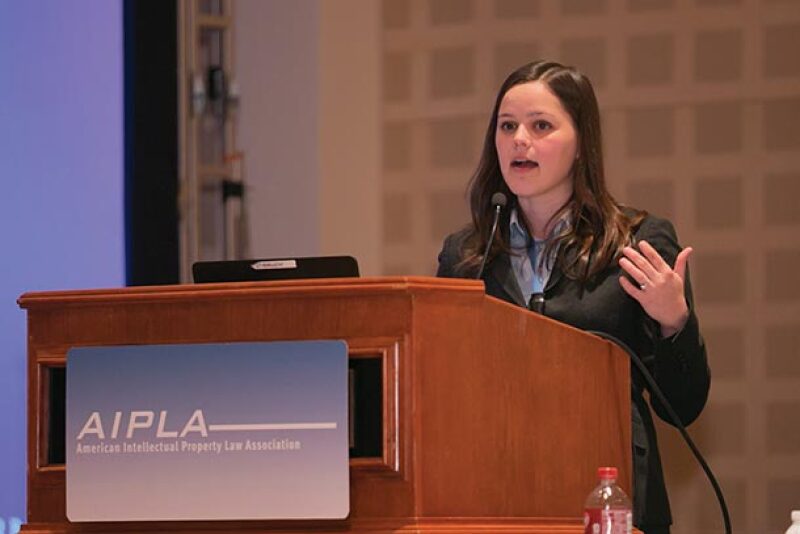
On the same panel Alexandra Bistline of Pirkey Barber highlighted the impact the Supreme Court has had on trade marks. The B&B Hardware ruling in March this year found that decisions by the TTAB can have a preclusive effect in subsequent trade mark suits. The problem: “Unfortunately, there is a fair amount of ambiguity around what the standard means and how courts are supposed to implement it,” she said. Bistline also noted that the Supreme Court’s Octane ruling last year, despite being a patent case, is affecting trade marks too.
“Given the language in the Patent Act and the Lanham Act in the featured provision is identical there is a really good argument that the Octane Fitness standard with respect to getting attorney’s fees in trade mark cases should so apply. And in fact every circuit that has considered the issue has stated that,” she said.










